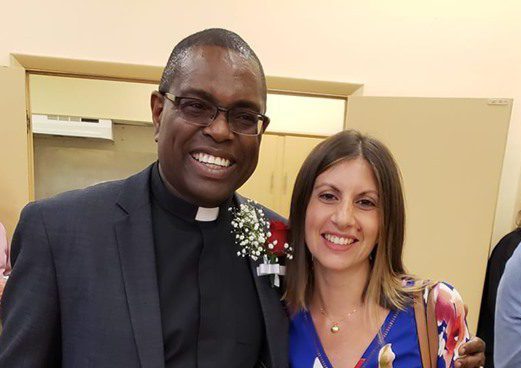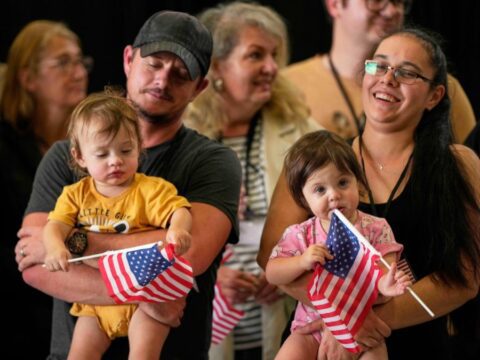As Americans held their breath and the world watched in eager anticipation, the projected winner of the 2020 U.S. presidential election was declared on Saturday. Joe Biden and Kamala Harris were named the president-elect and vice president-elect of the United States of America.
A new chapter in American history begins. There are still recounts and lawsuits expected from the outgoing president, but the holding pattern has ended and the results are finalized. Well, almost.
There is uncertainty in the election results, not because of the outcome, but because of the process, bringing another measure of unpredictability to an already-tumultuous year. The COVID-19 pandemic has disrupted our lives globally and uprooted any possibility of planning ahead. What began as a few hundred cases has spiked to a record-breaking more than 121,000 new daily cases in the United States as of Nov. 5, with the expectation that those numbers will only increase in the days ahead. More than 237,000 people in the United States and more than 1.2 million people have died from the novel coronavirus worldwide. The numbers are staggering, but their lives are even more precious, impacting family members, friends and loved ones in ways we can scarcely imagine. Collectively, we are experiencing insurmountable loss and grief. But with this victory for democratic values, we can take a collective sigh of relief.
Yet even as we feel the stress and tensions of the last four years ease, millions of people are still out of work and have lost health insurance. Students, parents and teachers are trying to adapt by developing remote and hybrid learning models. Businesses are closing. Until there is a reliable COVID-19 vaccine, most people will not venture out of their homes or resume their previously-enjoyed social activities.
As a country, we are more divided than ever. Along with economic disparities and inflammatory political rhetoric, Black, Indigenous and people of colour continue to confront white supremacy and racism. As an interracial couple, these are daily conversations that inform and strengthen our faith during times of great division and disparity.
More on Broadview:
- A nun spends her Election Day defending the polls in Wisconsin
- Legions are the heart of Canadian communities. Will they survive the pandemic?
- Veterans’ House aims to serve those who have already served
What does it mean to be a Christian right now? How are we called to live into this moment?
Christianity is about believing that God is deeply concerned with our suffering and deeply aligned with our joy. God loves each of us so much that God came into this world to bring healing. Jesus and his Jewish community lived under oppressive Roman rule, and the local tyrants abused the population. Yet Jesus preached a message of liberation and healing in the face of suffering, especially for those people most cast out by society – children, orphans, widows, the poor, those who were sick or shunned in any way. He centred those on the margins.
At its core, Christianity is about believing that hatred, violence, despair and death do not have the final say. God moves into places of brokenness and inequity, stands alongside those who are suffering, and advocates for their liberation and for justice and mercy. Being a Christian means believing in that hope. Living today as our country experiences political change is symbolic of that hope. Martin Luther King Jr. once said that “the arc of the moral universe is long, but it bends toward justice,” and right now, we are beginning to see this in action.
Our faith calls us to “to love our neighbour as ourselves,” welcome the stranger and care for “the least of these.” In this deeply divided nation, Christians and Americans alike feel this call to work towards healing and unity. There is so much work to do, especially along racial, political, international and environmental lines. But God’s activity in the world always moves towards reconciliation and love. We are witnesses to that. And so, together we can move forward into our work ahead faithfully with renewed hope.
Rev. Gregory I. Simpson, Ph.D. (Chem), STM., is the pastor of Nauraushaun Presbyterian Church in Pearl River, N.Y.
Suzanne C. Campise, MDiv., is a candidate for ministry in the Evangelical Lutheran Church in America.
We hope you found this Broadview article engaging.
Our team is working hard to bring you more independent, award-winning journalism. But Broadview is a nonprofit and these are tough times for magazines. Please consider supporting our work. There are a number of ways to do so:
- Subscribe to our magazine and you’ll receive intelligent, timely stories and perspectives delivered to your home 10 times a year.
- Donate to our Friends Fund.
- Give the gift of Broadview to someone special in your life and make a difference!
Thank you for being such wonderful readers.
Jocelyn Bell
Editor/Publisher














